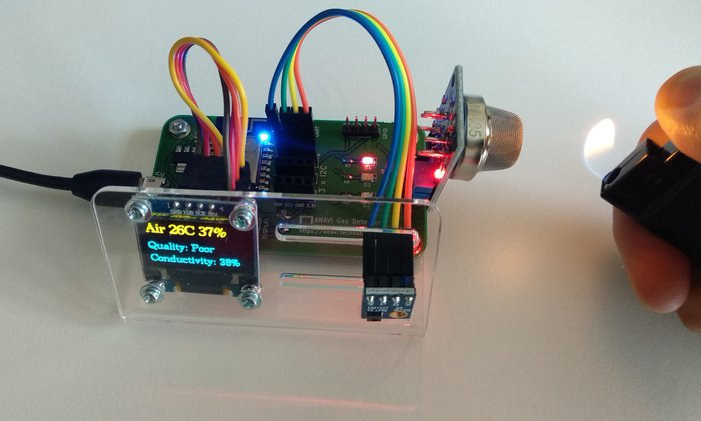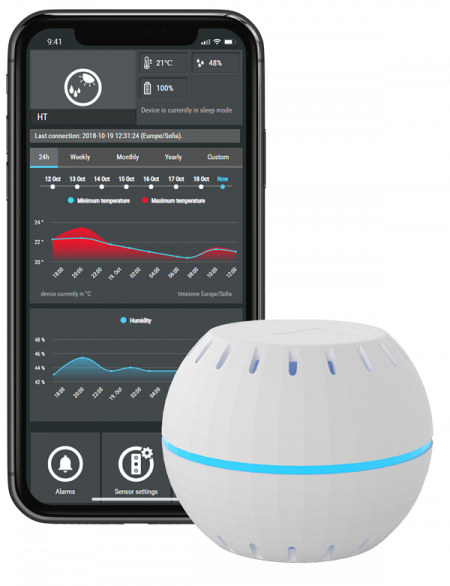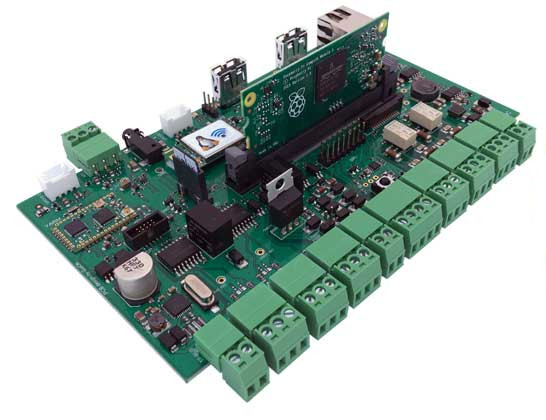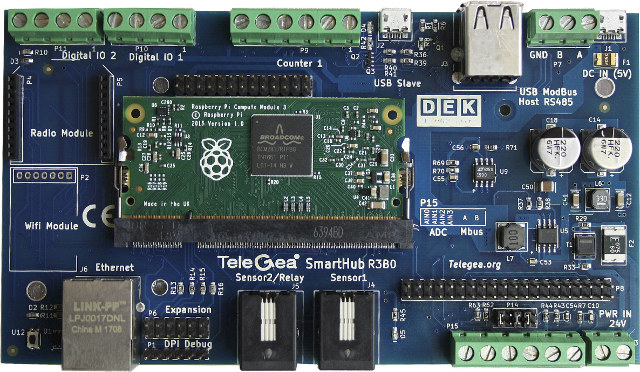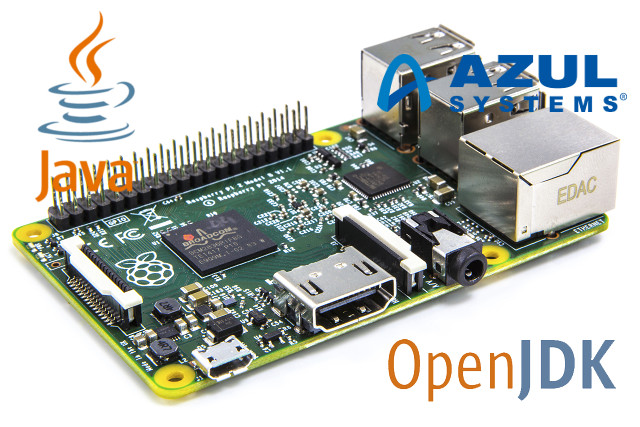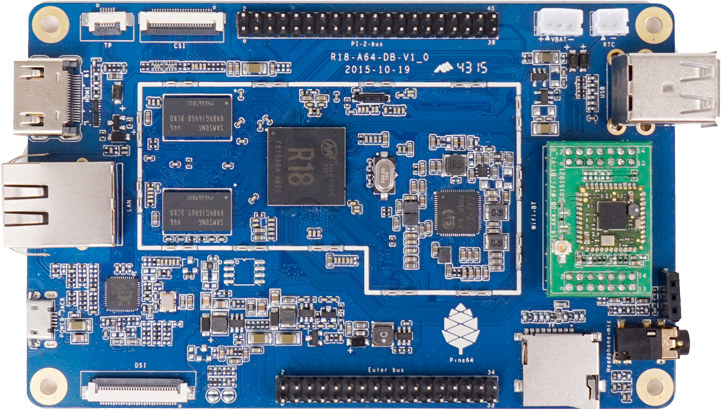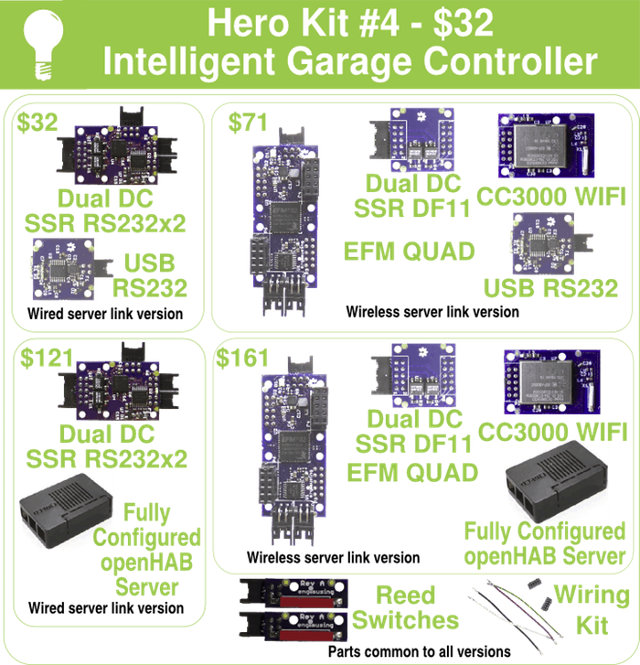Leon ANAVI is a software engineer with an interest in open-source hardware, and he had previously launched several ANAVI boards for home automation based on Espressif ESP8266 or for Raspberry Pi boards including ANAVI thermometer, ANAVI light controller, and ANAVI Infrared pHAT among others. Leon has now introduced a new board on Crowd Supply: ANAVI gas detector. The board is powered by ESP8266 WiSoC providing WiFI connectivity, and supports MQ gas sensor modules such as MQ-135, MQ-2, or MQ-3 in order to monitor air quality and detect gas leaks. ANAVI gas detector board specifications: Wireless Module – Based on ESP8266 Tensilica L106 32-bit processor with Wi-Fi 4 802.11 b/g/n connectivity Display – Optional Mini OLED display Gas sensor support – MQ-135 for air quality or any other 5V MQ analog gas sensor Expansion – 3x slots for I²C sensors Debugging / Programming – UART pins for flashing custom firmware Misc […]
Shelly H&T is a Battery Powered ESP8266 WiFi Temperature & Humidity Sensor
WiFi and long battery life do not usually go hand-in-hand, but as we’ve seen recently, companies have managed to design battery powered WiFi cameras that are said to last up to a year on a charge. So for simpler WiFi devices it should be feasible to last over a year, and that’s what “Shelly H&T” – an ESP8266 based battery-powered WiFi temperature and humidity sensor has apparently achieved, with claims of up to 16 months battery life. Shelly H&T specifications: Connectivity – 802.11 b/g/n WiFi (Wifi 4) Sensor – Temperature & humidity Battery – 1x CR123A battery good for up to 16 months Dimensions – 35 mm Ø sphere with flat top/bottom The firmware supports MQTT, and a Rest API, and works with Alexa, Google Home, and home automation suites like OpenHAB, Home Assistant, or Domoticz. The sensor is “open source ready”, meaning you’ll be able to flash your own […]
Acme CM3-Home is a Raspberry Pi 3 Compatible Board Designed for Home Automation
Raspberry Pi CM3 & CM3L modules are used in so many devices it’s hard to keep up. From NEC digital signage displays, to industrial touch panels, and IoT gateways, the Broadcom BCM2837 based system-on-module are found in more and more products and solutions, and number of announcements seems to have increased over the last few months. The latest product to leverage Raspberry Pi CM3L SoM is made by Italy based Acme Systems, and designed for home automation. CM3-HOME comes with opt0-isolated inputs compatible with KNX and DALI buses, various connectivity options (Ethernet, WiFi, Bluetooth, 868MHz ISM radio…), and other expansion port. Two edition of the boards are available: LITE and FULL, with the former suitable for most home automation project, and the latter adding support for some commercial lighting systems and energy harvesting Radio ISM nodes. Acme CM3-Home specifications: 200-pin SODIMM Module Slot compatible with Raspberry Pi CM3 / CM3L […]
Telegea Smart Hub DIN Rail IoT Gateway is Powered by Raspberry Pi CM3 Module
DEK Italia has recently introduced Telegea Smart Hub, an IoT gateway based on Raspberry Pi Computer Module 3 (CM3) with Ethernet, WiFi, RS232/485 ports, and various other I/O ports, that can leverage Raspberry Pi software ecosystem. The company explains the device is mainly targeted at DIY home automation applications as a smart home controller which runs open source smart home software like OpenHAB and Home Assistant, but it can also be used for many other IoT applications. Telegea Smart Hub R3B0 specifications: SoC – Broadcom BCM2837 quad core Cortex A53 processor with VideoCore IV GPU System Memory – 1GB LPDDR2 RAM Storage – 4GB eMMC flash, 256 byte EEPROM Connectivity – 10/100M Ethernet port, optional Wifi 802.11 b/g/n at 2.4 GHz Serial – RS485 serial port, RS232 serial debug port USB – 2x USB 2.0 host ports Expansion 6xdigital inputs via screw terminals (for dry contacts or S0 interface) 4x […]
Azul Systems’ Zulu Embedded is a Build of OpenJDK for ARM, MIPS, PowerPC, and x86 Compliant with Java SE standard
Yesterday as I wrote about the Embedded Systems Conference 2017 schedule I came across a potentially interesting talk entitled “Building A Brain With Raspberry Pi and Zulu Embedded JVM” by Azul Systems that will explain how to build a brain emulator using a cluster of Raspberry Pi boards. I wanted to find more about it, but I have not been able to find any details about the project/demo at this stage. However, I could still learn a bit more about Zulu Embedded, which is said to be an open source Java Virtual Machine based on OpenJDK, compliant with Java SE standard, working on 32-bit & 64-bit ARM & x86, MIPS, and PowerPC, as well as multiple operating systems. Some of the key features of Zulu Embedded include: Java Support – Java 6, 7, 8, and 9 when available Java Configurations – Headless, headful, or compact Java Compact Profiles Hardware – […]
PINE A64 Development Board Kickstarter Campaign is Up
As previously announced, PINE64 $15 64-bit ARM Linux computer was due to launch on December 9, and the Kickstarter campaign is now up, and the shipping costs are $7 to the US, and $12 to the rest of the world. The name have changed to PINE A64 and PINE A64+ since the first announcement, but the specifications have mostly not changed for th two boards with an Allwinner quad core Cortex A53 processor, 512MB to 1GB RAM, a micro SD slot for storage, Gigabit Ethernet, HDMI 1.4, USB ports, and some other expansion headers for I/Os, displays or cameras. The PINE A64+ however now has an option for 2GB for $29, and we’ve got a bit more information about optional modules and accessories: Wireless module with WiFi and Bluetooth adapter Zwave adapter 7″ LCD touchpanel (PINE64+ only) Dry contact I/O board 5MP MIPI CSI camera Various sensors Various remote controls […]
$15 PINE64 64-Bit ARM Single Board Computer is Powered by Allwinner R18 Processor (Crowdfunding)
It looks like Next Things’ C.H.I.P computer with Allwinner R8 processor will soon have a big brother with PINE A64 board powered by Allwinner R18 / A64 quad core Cortex A53 processor, and made by a US start-up also called PINE 64. PINE A64 and PINE A64+, a version with more memory and features, will have the following specifications: SoC – Allwinner R18 (based on Allwinner A64?) quad core ARM Cortex A53 processor @ 1.2 GHz with Mali-400MP2 GPU System Memory PINE64 – 512 MB DDR3 PINE64+ – 1 GB DDR3 Storage – micro SD slot supporting up to 256 GB Video Output HDMI 1.4 up to 4K resolution @ 30 Hz PINE64+ only – 4-lane MIPI DSI connector and touch panel connector Video Codecs – H.265 up to 4K Audio – HDMI, 3.5 mm headphone jack Connectivity PINE64 – Fast Ethernet + optional WiFi & Bluetooth module PINE64+ – […]
Engimusing DIY Home Automation Modules Are Managed with openHAB installed on ODROID-C1 Board (Crowdfunding)
Engimusing has launched a crowdfunding campaign on Kickstarter for their home automation solutions comprised of tiny modules (20x20mm) based on Silicon Labs Gecko EFM32 MCUs, some sensor modules and a server based on ODROID-C1 board and enclosure pre-installed and configured with openHAB open source home automation software. There are not that many technical details about the EFM32 modules, but they come into two variants: standalone & DF11-10 I/O, the latter allowing you to vertically stack multiple modules. This video shows how DF11-10 IO connectors work. The modules are said to be programmable with the Arduino IDE. The openHAB server is a standard ODROID-C1 board (Amlogic S805, 1GB RAM) with 4GB flash (eMMC or micro SD), and a black enclosure. If you value your money more than your time, and/or already have another computer or board (Raspberry Pi, BeagleBone Black…) that runs Linux, you could also install and configure openHAB by […]


